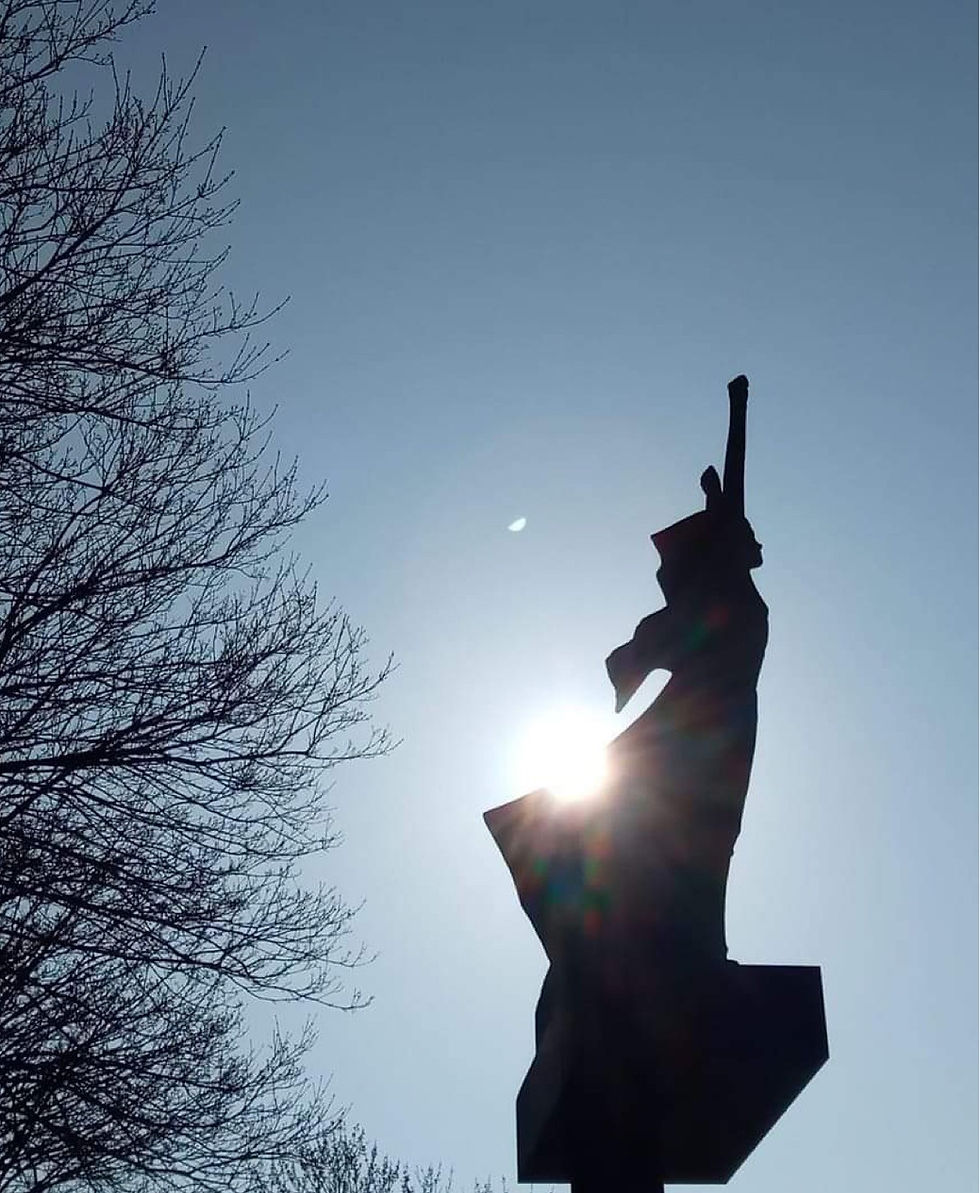Lessons from France
- May 28, 2024
- 4 min read

Paddy Farrington and Cathie Lloyd review Sophie Binet’s new book : The trade union leader highlights important traditions which need refreshing for our times
“It is a quarter to midnight. The far right is advancing constantly. Like a virus, it infects the social fabric and replicates within its cells. One by one, political and moral barriers are breached. Armed conflicts multiply beyond our borders. It is a quarter to midnight and the world is on fire.” Thus opens a new essay by Sophie Binet of the French CGT trade union confederation, introducing the republished 1942 programme of the National Council of the Resistance (CNR).
In 2023, Sophie Binet was elected General Secretary of the CGT, France’s largest trade union confederation. The first woman to hold this post, her route to the top was unusual, and reflects the changing political terrain of the French left. Her early political involvement was with the Jeunesse Ouvrière Chrétienne (JOC), a grass-roots workers’ organisation inspired by progressive Catholic ideas. Quite the change from her predecessors, who came up through the ranks of the French Communist Party. Subsequently she was active in the Socialist Party, in the student and women’s movements, and then within the white-collar section of the CGT, where she acquired a reputation for building effective alliances, rooted in grass-roots struggles.
Her depiction of the dangers posed by the far right to democratic and social norms, resulting from the untrammelled power of capitalist multinationals, amplified by climate change denialism and fake news, will be all too familiar to readers from the UK. In France, it carries a further echo. “The world of 2024 is strikingly reminiscent of that of the 1930s”, she writes, with a “multiplication of armed conflicts and the far right in power or knocking at its door”, evoking the fateful pre-war slogan of the French far right “rather Hitler than the Popular Front” which, she argues, reflects the political leanings of sections of modern-day Capital.
Her essay is a reflection on the tasks faced by the French resistance to fascism during the Nazi occupation and how we may still learn from this experience today. Central to it is the historic unity achieved between anti-fascist organisations, and their unanimous adoption of a wide-ranging programme of democratic and social reform, around which a united anti-Nazi resistance could be mobilised. The participants in the CNR included representatives of the many different armed resistance groups, of the two existing trade union confederations (the CGT and the catholic CFTC), and of six political parties from the Communist Party to parties of the anti-fascist Right. They laid down the basis on which France would be rebuilt after its liberation over a period of nine months, under conditions of extreme danger – a third of the CNR leaders were arrested and three died at the hands of the Gestapo.
The CNR programme, adopted in March 1944, was titled “The happy days” (Les jours heureux). The first part set out the immediate tasks confronting the resistance, including the intensification of the armed struggle against the Nazis and the fascist militia of the Vichy regime. It successfully tied up German troops and disorganised their supply lines, and eventually led to the liberation of Paris in August 1944. Sophie Binet credits the resistance for re-establishing French sovereignty and avoiding the imposition of a US-dominated government.
The second part of the CNR programme detailed the measures to be taken by the provisional government after the liberation. It set out the most radical democratic advances in French society since the 1789 Revolution, which went well beyond the re-establishment of political liberal democracy. Thus, it called for the nationalisation of the main means of production, of the energy industry, insurance companies and major banks; the development of cooperatives; the participation of workers in the management of companies and the direction of the economy; and major reforms to guarantee social security, minimum salaries and working conditions. Sophie Binet describes these proposals, which were adopted by the Provisional Government of General De Gaulle, as constituting “the pillars of our society for the past eighty years”. She points to the revolutionary creation of the Sécurité Sociale, which she contrasts with the UK’s top-down Beveridge-inspired system: the French system, in contrast, was administered in large part by elected representatives of salaried workers.
The CNR programme shows what unity in struggle can deliver. A result of compromise, it inevitably had its limits: it did not support equal rights for women (French women only got the vote in 1945), and had nothing to say about French colonialism. And in the following years the new republic tarnished its image for ever by launching disastrous colonial wars in Vietnam and Algeria in a vain attempt to suppress the very same principle of self-determination from which it was born.
Since the 1940s, trade unions have continued to struggle to take its achievements further. Thus, for example, retirement at 60 years of age was won in 1982. But neo-liberals are constantly challenging it to water it down or jettison it completely. As the far right asserts itself again, Sophie Binet argues that the social question must once more take centre stage, and be made real through united action. She identifies two key issues to be addressed. The first is the lack of a coherent sense of social purpose in society, which requires us to face up to the environmental crisis, promote well-being, and once again – as set out in the CNR programme – ensure that collective benefit trumps individual gain. The second key issue is to end the fragmentation of society by once more promoting universal, collective rights and protections, along with greater equality.
The left in France is presently deeply divided, often indulging in senseless personality-driven conflicts. Sophie Binet emphasises the unifying potential of the trade union movement, exemplified by the mass protests in 2023 against the Government’s attempt to increase the pension age to 64. Eighty years ago, the CNR united the divided forces of the resistance and, by offering a transformational programme for the future, helped to unify France against fascism. Today’s challenges require no less, and we can learn from it ourselves.
Sophie Binet, Les Jours heureux, et il est minuit moins le quart, Grasset, Paris, 2024. Binet’s book awaits translation into English.



